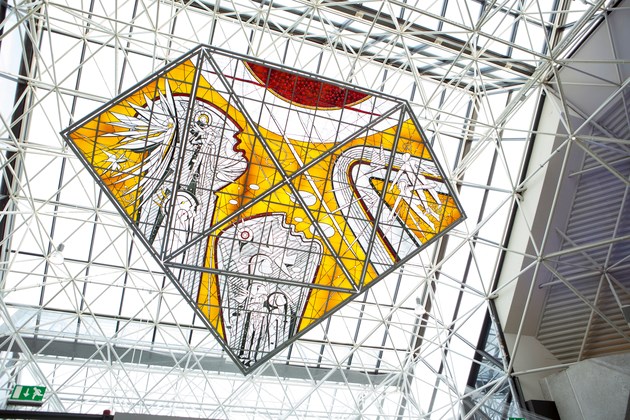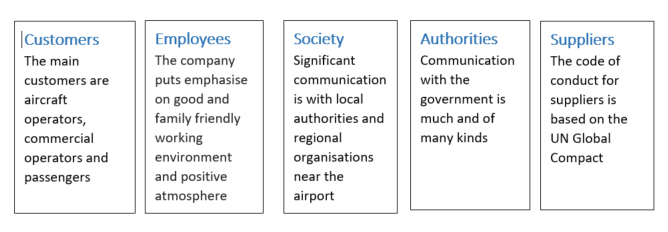
WE LISTEN
Isavia focuses on extensive collaboration with the stakeholders who rely on the services of the company and who are affected by the operation. The operation has an impact throughout the country and on all its inhabitants. Isavia has identified over a hundred stakeholders that can be classified as customers, employees, the society, the authorities and suppliers.

